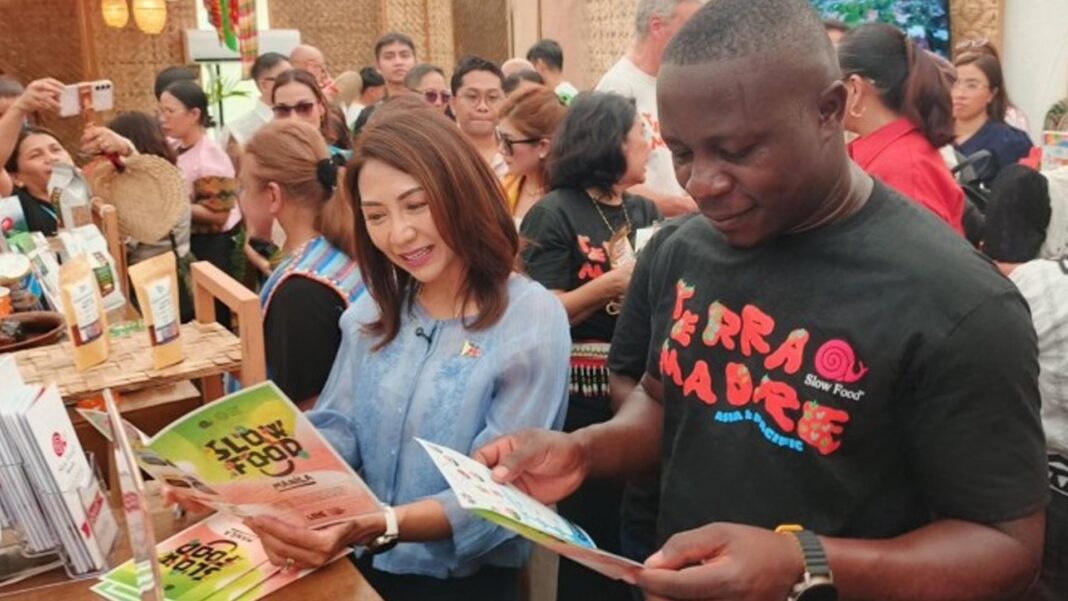The inaugural Terra Madre Asia and Pacific, jointly hosted by this highly urbanized city and the province of Negros Occidental, puts a spotlight on the emerging slow food communities in the Philippines.
The five-day event, which opened on Wednesday at the Provincial Capitol Lagoon here, is a celebration of good, clean and fair food, gathering farmers, fishers, chefs, indigenous leaders and advocates from more than 20 countries.
In her message, Department of Tourism (DOT) Secretary Christina Garcia-Frasco thanked the international delegates for engaging in the journey of discovery and the wonders of the Philippines.
“We are all united by our shared mission: to nurture sustainable, inclusive, and community-related food systems,” she said.
Frasco said the Terra Madre Asia and Pacific is both a milestone and a call to action for the DOT, which has led various efforts in positioning the Philippines as Asia’s rising culinary capital.
“We do more than celebrate cuisine –we create opportunities for communities to empower our local producers, and ensure that tourism generates tangible benefits for our people as well as sustain our food heritage,” she added.
For the first Terra Madre Asia and Pacific, the DOT Slow Food Travel Pavilion showcases immersive, community-based culinary experiences from provinces across the country.
“Visitors can journey to Pasil in the Cordilleras, Manila in the National Capital Region, Cavite in Calabarzon, Cebu in Central Visayas, or Bingawan (Iloilo), Capiz and Boracay in Western Visayas, and of course, the offerings of the Negros Occidental,” Frasco said. “These experiences, we hope, will not only allow travelers to taste our food but also to connect them directly with the people and places that make it possible.”
A community kitchen also features representatives from the 61 barangays of Bacolod City, where local dishes are prepared, shared and celebrated as living traditions for the community.
Street food booths offer a diverse range of delicacies from regional dishes, including contributions from the Bangsamoro Autonomous Region of Muslim Mindanao.
Focusing on the host city and province, Frasco said Bacolod City and Negros Occidental are “more than scenic destinations, they are vibrant hubs of agriculture and marine resources.”
“By showcasing these resources through tourism, we provide local communities with markets, income and recognition, while reinforcing the country’s identity as a destination where culture, nature and gastronomy come together,” she added.
Slow Food International president Edward Mukiibi said he hopes the first edition of Terra Madre Asia and Pacific ignites a movement and a moment that will nourish and sustain future generations.
“Thank you for coming and sharing with us our common vision. Together, let us celebrate diversity, protect tradition and culture as well as a good, clean and fair future,” he added.
In a statement, Negrense organic farmer Ramon Uy Jr., president of Slow Food Asia and Pacific, said the Philippines now has 35 slow food communities.
“When communities, government and the private sector come together, real change happens. Slow Food Negros has become a template of collaboration, showing how we can create tangible results for farmers, fisherfolk, artisans and food communities,” he added.
For five days, the Terra Madre and Asia and Pacific presents a journey into the diversity of Asia-Pacific food cultures through immersive exhibits, conversations, tastings and activations.
The themes include Foodways of Asia and Pacific, Foodways-Education, Slow Food Coffee Coalition, House of Slow Food, Terra Madre Kitchen, slow food travel, public talks and conferences, taste workshop, slow drinks, organic festival market, street food and community cook-off. (PNA)


